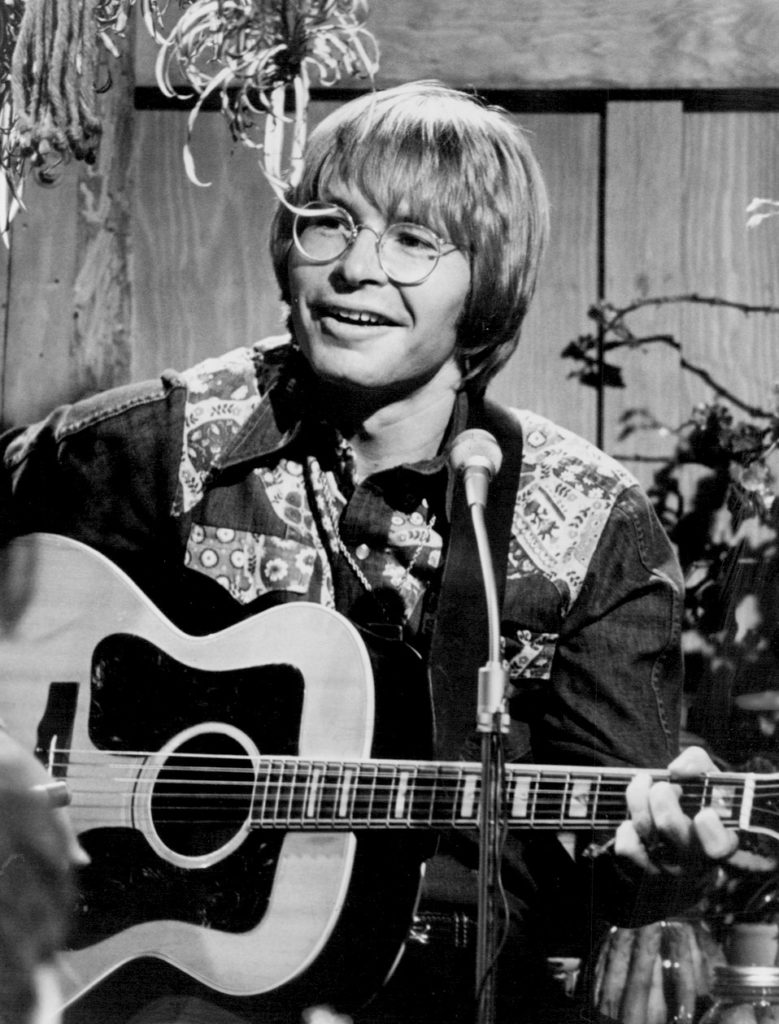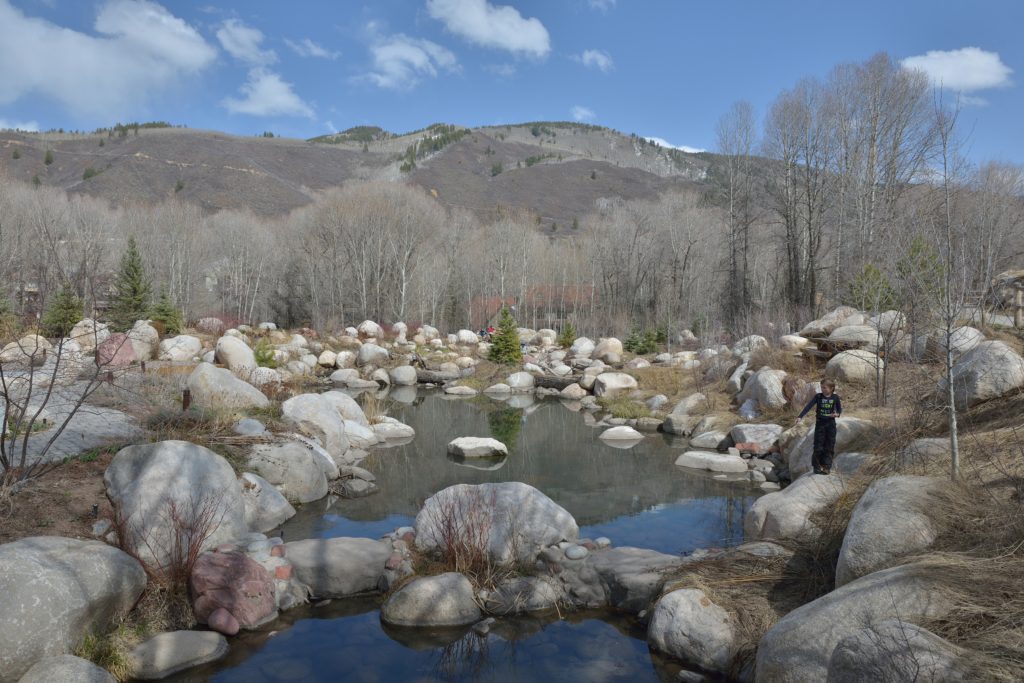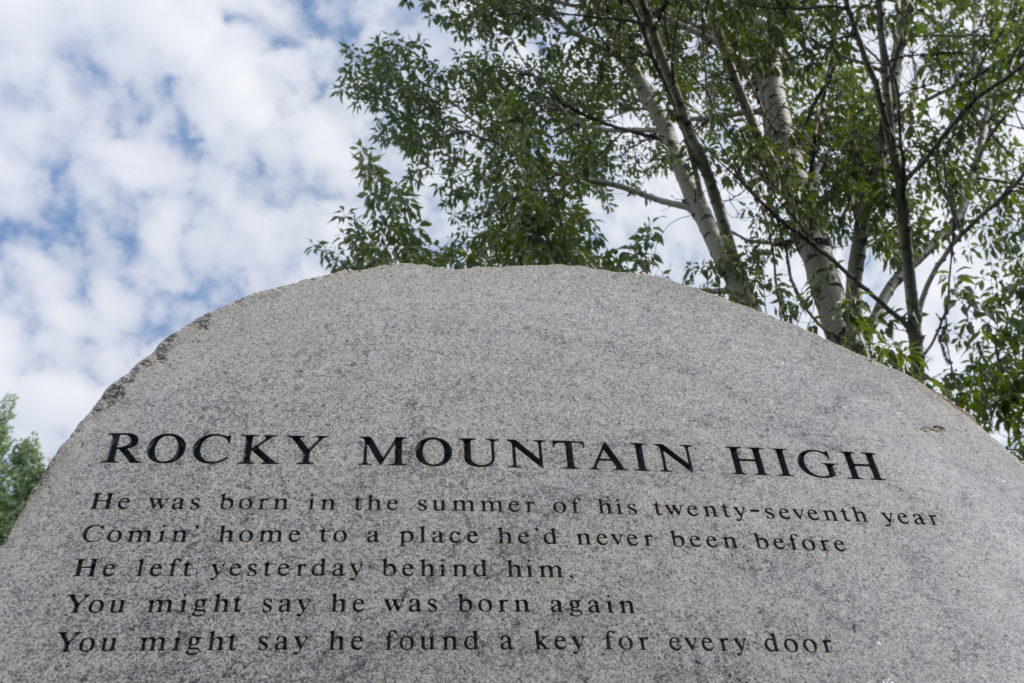In early summer, 1975, I was driving by myself from Syracuse, New York, to Sullivan, Illinois. It was a long drive, and I stayed awake by switching radio channels, seeing how often I could hear John Denver’s latest hit, “Thank God I’m a Country Boy.” I don’t remember the details now, but my impression is still that I could just about hear that song continuously as I crossed the country! In those days, John Denver was everyone’s best friend—and that includes the environment.

Although his song claims he was “born in the summer of his twenty-seen year,” he was actually born on the last day of 1943 (died 1997). And not in Colorado, but in Roswell, New Mexico. He moved often growing up, following the military career of his father. He dropped out of art school at Texas Tech in 1964 to become a song-writer and folk singer. He changed his name from John Deutschendorf, Jr. to John Denver (yes, for the capital of his adopted state). In 1967, he wrote “Leaving on a Jet Plane,” which became a number-one hit for Peter, Paul and Mary.
Just as “sunshine on my shoulder makes me happy,” John Denver’s music made American happy. His musical star rose with hit after hit, with heart-warming songs that made us all yearn for simple pleasures like “grandma’s feather bed.” He was the biggest singing star of the 1970s, turning sentiments like “take me home, country road” into pure gold.

But along with the music, John Denver had another message. He loved nature, and he worked tirelessly for conservation and sustainability. He established two non-profit organizations on behalf of the environment. The first was the Windstar Foundation, set on a 1,000-acre property near his home in Aspen, Colorado. The Foundation worked to enhance education about sustainability across the world (it closed in 2012). The second was Plant-It 2020, a tree-planting organization that still operates today, re-establishing degraded forests and planting new ones. He also co-founded The Hunger Project, dedicated then to education and awareness about world hunger and still today performing valuable active grassroots programs to build local food security. For two decades, he represented UNICEF.
These organizations are important, of course, but it was the larger-than-life presence of John Denver that was his biggest contribution. A close friend said, “You just have to find something you love and live al ife that shows it. John found music. He turned it into a vehicle to make a huge difference.” John Denver wrote songs about the environment; perhaps the most famous was “Calypso,” honoring the work of Jacques Cousteau. He was a leading spokesperson for the environment, going wherever he was needed—Congress, television, radio, public events. He supported many other organizations, most notably the National Wildlife Federation; he dropped a special album, “Earth Songs,” with proceeds going to support the Federation’s programs. He said, “I want to inspire people to make a better world and a healthier environment. My songs…have to do with taking responsibility for the world we want to create.”

He was an avid pilot and used this skill also to support conservation. His friend said, “John and I did an aerial educational tour of the forests of the Pacific Northwest….We did it in his Learjet. We put the flaps down and flew very slowly with some notable dignitaries, which enlightened everyone to how rampant the clear-cutting was. The aerial perspective puts it all together. It lets the land speak for itself.”
Tragically, his love of flying cut his life short. John Denver died at age 53, when his experimental plane crashed in the sea near Monterey, California, on October 10, 1997. His message, however, is eternal—and simple: “Commit yourself to do whatever it is you can contribute in order to create a healthy and sustainable future—the world needs you desperately. Find that in yourself and make a commitment—that is what will change the world.”
References:
Encyclopedia Britannica. Joh Denver. Available at: https://www.britannica.com/biography/John-Denver. Accessed January 20, 2020.
Plantit2020. Plant-It 2020 Overview. Available at: https://plantit2020.org/about.html. Accessed January 20, 2020.
Pryweller, Joseph. 1990. John Denver Still High on Being a Good Global Citizen. Daily Press, July 3, 1990. Available at: https://www.dailypress.com/news/dp-xpm-19900703-1990-07-03-9006290344-story.html. Accessed January 20, 2020.
Stunda, Hilary. 2011. John Denver: An environmental legacy remembered. The Aspen Times, October 7, 2011. Available at: https://www.aspentimes.com/news/john-denver-an-environmental-legacy-remembered/. Accessed January 20, 2020.
